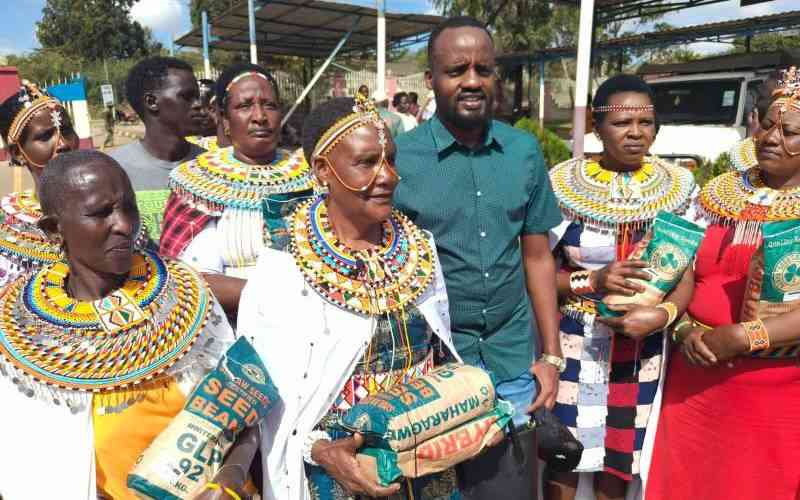
Samburu County in Northern Kenya is known for its hot, dry conditions and receives very little rainfall.
Over the years, the region has faced prolonged droughts and erratic weather patterns, devastating local livelihoods—especially among pastoralist communities.
Traditionally, herders in Samburu migrate with their livestock in search of pasture and water.
But in recent years, many animals have died due to the lack of rain, which has hindered the growth of grazing vegetation.
As a result, many families have lost their livestock and are now turning to farming for survival. In Samburu culture, owning large herds symbolises power and respect, while farming is often seen as less prestigious. However, the increasing loss of animals has left many with no choice but to embrace agriculture. Nkilisen Lengupae, once a respected herder in Lporos village, owned about 100 cattle and 50 goats.
After losing most of them to drought, he began farming. Last season, his family cultivated three acres of maize. This year, they plan to grow both maize and beans. “When I started farming, some people criticised me,” he said. “But now more herders are joining after seeing our success.”
Lengupae now trains other herders under a county initiative. The Department of Agriculture, Livestock, and Fisheries is providing training on land preparation, planting, and watering methods.
Recently, Governor Lati Lelelit oversaw the distribution of 131 tonnes of certified maize and bean seeds to over 5,000 households.
The seeds, sourced from Kenya Seed Company, target families shifting to farming.
Governor Lelelit said the county is working to achieve food security and reduce reliance on relief food. Other efforts include investing in camels and resilient farming.
Agriculture CEC Moses Leluuta added that Samburu’s fertile land, if well used, can sustain families.
Beneficiaries like Beatrice Tetei and Pamela Nasieku praised the support, including free tractor services and timely seed distribution.



